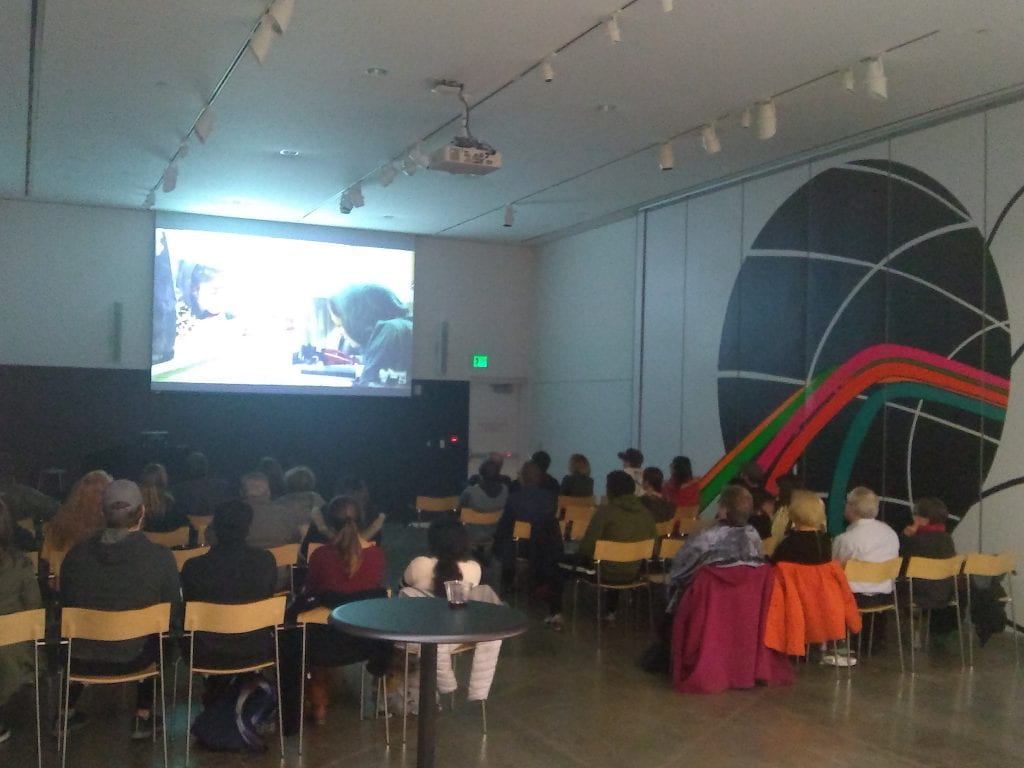
On Tuesday, November 13, the Institute for Human Rights and Consulate General of Switzerland – Atlanta co-sponsored a showing Sonita, a film based on a 15-year-old girl from Afghanistan who immigrated to Iran in order to flee the Taliban. Over the course of the three years Sonita is filmed, she is able to receive assistance at a center for refugee children in Tehran, Iran where she works on her dream of becoming a rapper by performing for her classmates and pursuing a place to record her music.
What many people are unaware of is the Afghani tradition of forcing children into marriage, with Sonita’s family setting her price as $9,000. Without intervention from the filmmaker, Rokhsareh Ghaem Maghamim, who paid her family $2,000 to postpone her marriage, Sonita might have not made it to where she is now. To make matters worse, women are not allowed to sing in Iran. So, in order for Sonita to continue her dream of becoming a rapper, the shelter could no longer be affiliated with her. Maghami then managed to take Sonita to the United States, without her parent’s permission, to pursue a career in rap.
Maghami started filming this documentary to help her cousin who worked at the refugee center, while her cousin just wanted to help Sonita find some training for her music. However, these selfless acts dramatically changed a young woman’s entire life.
Sonita shares the story of one young woman’s strength, perseverance, and the ability to use music as a vehicle to confront social injustice. This film not only gives the audience an inside look to both a tradition and country many are unfamiliar with, but also provides Sonita with the voice she needs to have her story heard.

